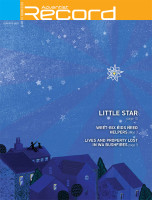It wouldn’t be Christmas without a good old-fashioned social media storm over the “War on Christmas”. I say “old-fashioned” because, although we’ve only been living in the social media age for a decade, this new holiday tradition has become awfully familiar. It’s like we’ve transported our annual Christmas family frictions into society in general. The “happiest time of the year” is now also the grumpiest.
This year, Facebook lit up with reports of outrage over Starbucks coffee cups. Starbucks, a coffeehouse that is ubiquitous in the US and other nations that don’t have appreciation for quality coffee, generally puts a Christmas-related design on its disposable coffee cups this time of year. In the past, the cups have featured pictures of such seasonal fare as carollers, Christmas trees and snowmen. But this year? The cup is simply red with the green Starbucks logo. The lack of Christmassy imagery on the cups, it was widely reported, outraged Christians.
The news reports of stupid Christians getting bent all out of shape spread through social media like the foam atop a cappuccino. As did the responses. And weren’t they sharp. There was the ironic. The sardonic. The snarky. Many of the posts mocking stupid Christians were by cool Christians keen to put distance between themselves and all those Christian buffoons out there.
But there was something odd about the controversy. Where were the outraged Christians? It turns out that they were nowhere. Well, not entirely nowhere. There are 2.2 billion Christians, so there is a Christian somewhere angry about just about anything imaginable at any given time. But as for anything close to large-scale collective Christian outrage about Starbucks cups that might resemble a newsworthy controversy? It never existed. At least not according to an analysis of social media during the period.
The non-controversy controversy worked out so well for Starbucks, some industry insiders questioned whether the entire thing had been a hoax from the start. One food industry insider stated “it could be 2015’s greatest marketing stunt”.
 This year's Starbucks Christmas cups have made some people see red.
This year's Starbucks Christmas cups have made some people see red.
Whether or not it was a stunt, the controversy said more about us than it did about anyone silly enough to care one way or another about someone else’s coffee cups. It illustrates perfectly a new phenomenon I’ll call “Cool Christians Culture Cringe”. We are increasingly seeing negative Christian stereotypes portrayed in the media and the far fringes of our faith community portrayed as the norm. And we are internalising these caricatures as accurate representations. As a result, we’re very quick to heap derision on other Christians. After all, we all think of ourselves as cool, clever Christians, don’t we? Or is it just me?
University of Connecticut sociologist Bradley Wright has written a provocative book, Christians Are Hate-Filled Hypocrites ... and Other Lies You’ve Been Told on this phenomenon. Granted, it’s a long title. But the book is well worth the read. It turns out that many of the negative caricatures Christians have internalised about each other are based on nonsense. But nonsense, if believed broadly enough, can have profound negative impacts.
According to a Pew Forum study, Christians were harassed over a recent six-year period in more nations on earth than any other religious community—a staggering 151 countries. And it’s impossible not to notice that in Western media Christians are increasingly derided. This Christmas, let’s remember that the derision, discrimination and persecution Christians face isn’t because those who follow Christ are the ignorant rabble of bumpkins conjured in the negative caricatures. Christians face hostility primarily because of Who we serve. As Christ Himself put it:
“If the world hates you, remember that it hated me first. The world would love you as one of its own if you belonged to it, but you are no longer part of the world. I chose you to come out of the world, so it hates you . . . Since they persecuted me, naturally they will persecute you” (John 15:18-20).
This Christmas as we see Christians suffer derision, discrimination and, in many parts of the world, persecution, we may be tempted, like those infected with “Cool Christian Culture Cringe,” to prove how different we are from those suffering. I for one want to be a lot less cool and a lot more like the Christians who have the courage to stand strong for Christ, even when they are hated for it.







